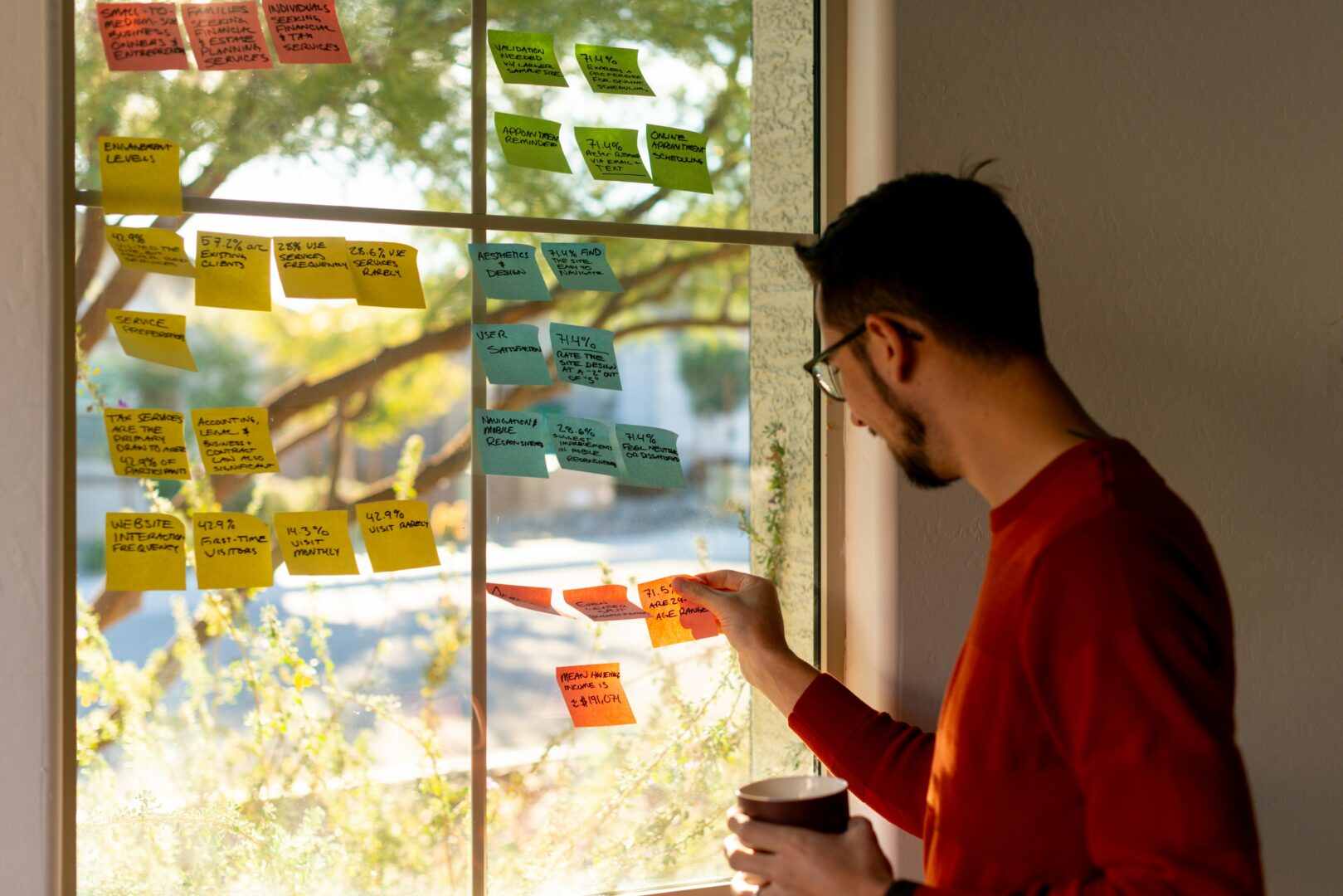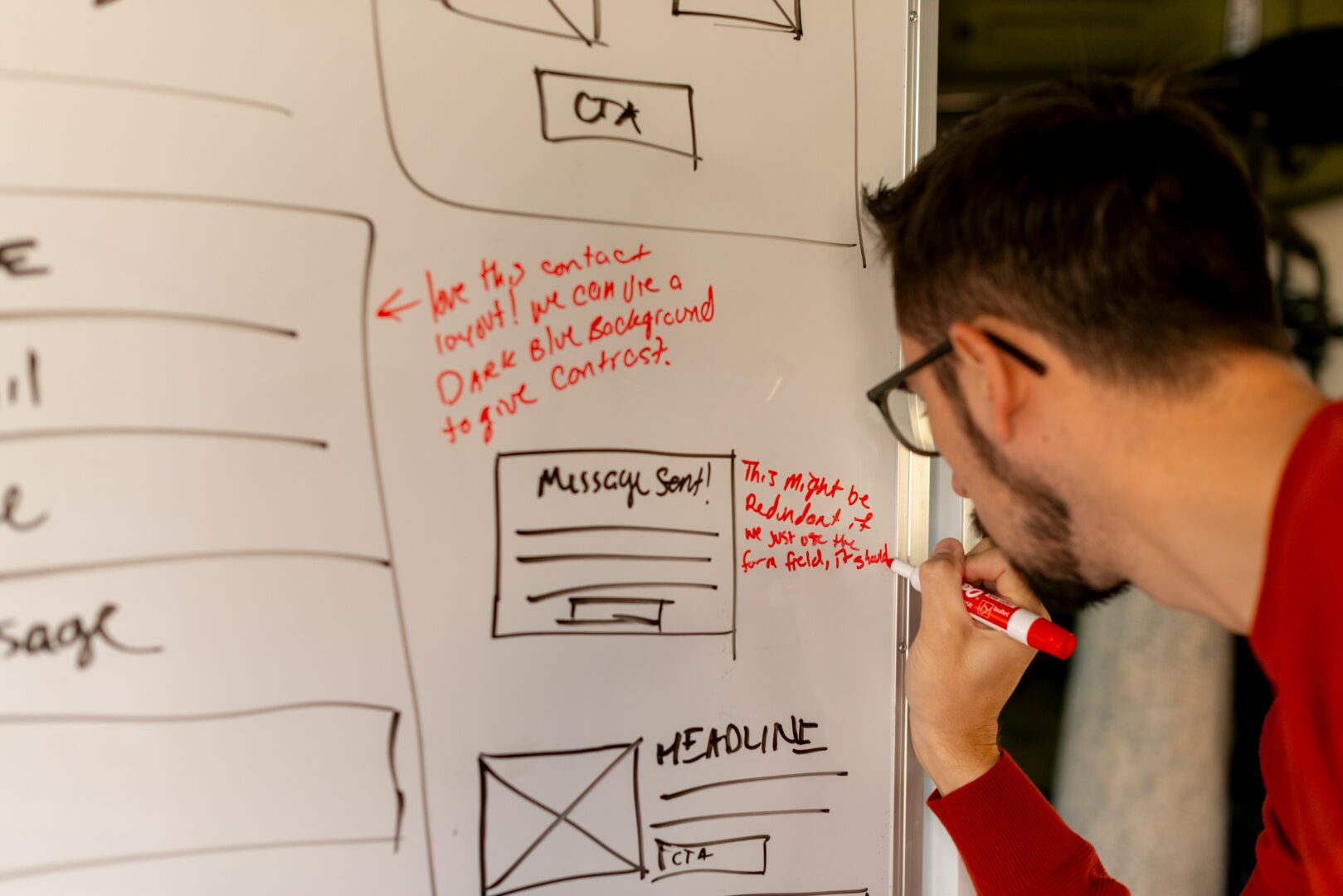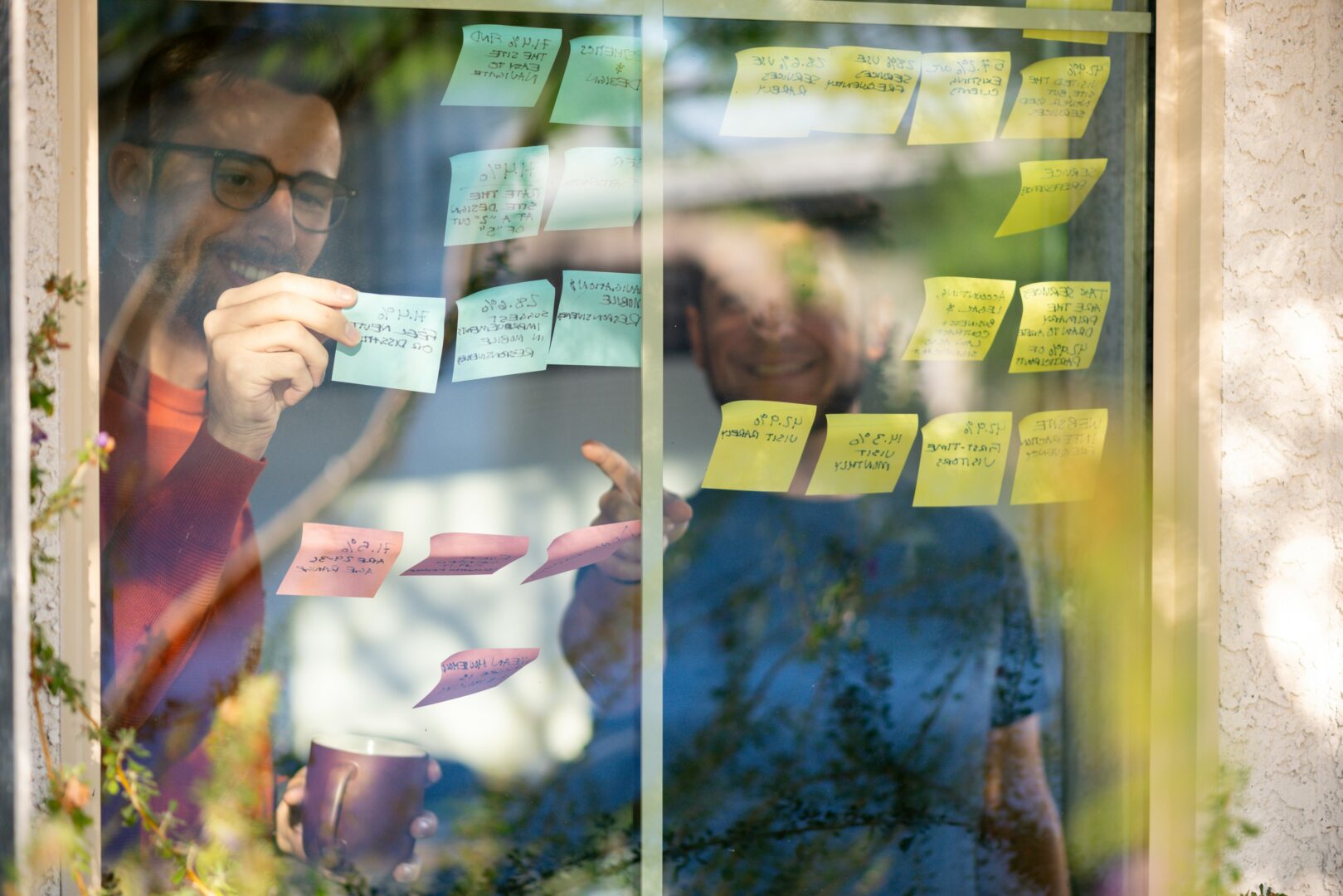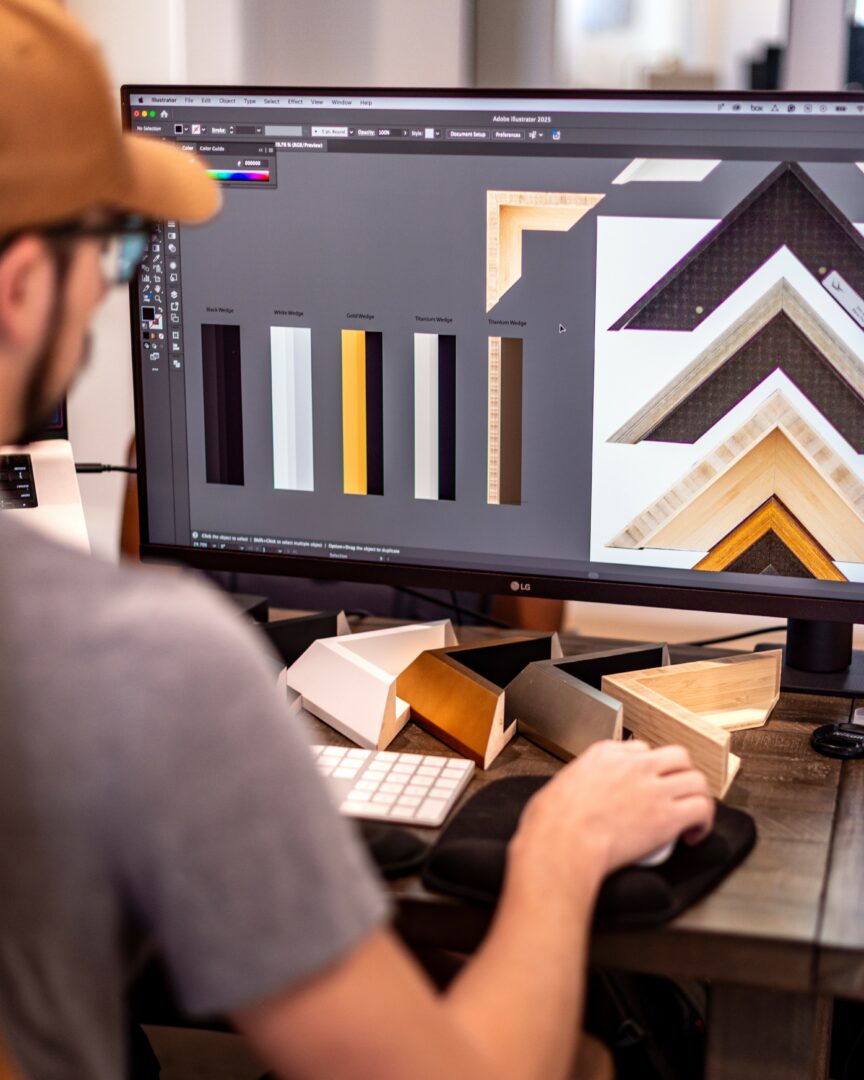Alright – so today we’ve got the honor of introducing you to Cameron Rennacker. We think you’ll enjoy our conversation, we’ve shared it below.
Alright, so we’re so thrilled to have Cameron with us today – welcome and maybe we can jump right into it with a question about one of your qualities that we most admire. How did you develop your work ethic? Where do you think you get it from?
It’s much easier to have a strong work ethic when you love what you do.
These days, I’m wearing a few hats: Co-Founder and Head of Creative at Rennacker Studio, Chief Ranger at Range & Focus, Assistant Teaching Professor at Arizona State University, and, to keep things interesting, I’m also working toward a PhD. I know… it’s a lot. But I’m not one of those “hustle-culture” guys who brag about sleeping three hours a night and living off caffeine and chaos.
This won’t be one of those articles that tells you to wake up at 3 a.m., hit the gym (though you should probably do that part), eat two raw eggs, and grind until 10 p.m. I still like my sleep. I just happen to love my work more than I love my downtime.
Oddly enough, I think I learned as much about work ethic from bad examples as I did from good ones. Some of my early jobs showed me what kind of culture I didn’t want to build. I saw what happens when people clock in for a paycheck instead of showing up with purpose. I realized I never wanted to dread Mondays or create environments where people did.
That experience taught me to define success on my own terms: not just by how much I produce, but by whether I still enjoy producing it.
The key to a strong work ethic, in my opinion, isn’t discipline; it’s devotion. When you’re genuinely excited about the work in front of you, you don’t need motivational quotes or grindset playlists. You just get to it. Passion fuels consistency far more effectively than guilt or comparison ever could.
I love teaching because it’s fulfilling to watch students find their stride. I love running Rennacker Studio because it keeps me sharp and collaborative. And I love Range & Focus because it lets me reconnect with nature, storytelling, and the simple joy of being outdoors with a camera in my hand.
All of it, collectively, fills my cup. And when you’re doing something you love, work ethic stops feeling like “work.”
People often ask how I manage it all: three careers, grad school, and a life with a husband and a dog who also need my attention. The truth is, I don’t think of it as “managing.” I think of it as building something. Building a career, building teams, building stories, and, most importantly, building meaning. And when you’re building something you believe in, you don’t need to force yourself to care. You just naturally care.
So if you’re looking for where my work ethic comes from, it’s not discipline, it’s not routine, and it’s definitely not hustle culture.
It’s love for what I do.
Appreciate the insights and wisdom. Before we dig deeper and ask you about the skills that matter and more, maybe you can tell our readers about yourself?
Professionally, I split my time between three worlds that somehow all feed each other. I’m the Co-Founder and Head of Creative at Rennacker Studio, the Chief Ranger at Range & Focus, and an Assistant Teaching Professor at Arizona State University. On top of that, I’m pursuing my PhD because apparently, I like a good challenge over a relaxing weekend.
At Rennacker Studio, I lead creative strategy for brands that want to tell their stories better. We like to think of design as problem-solving and giving a brand a personality. At Range & Focus, I get to slow things down. It’s my home goods and outdoor gear brand built around photography, storytelling, and the sensory experience of being out in the wild—especially in our national parks. Every print, scent, and product we make is designed to remind people that beauty and nature are worth protecting.
And then there’s teaching. At ASU, I get to advise the next generation of designers and help them find their voice and professional footing. It’s the most rewarding work I do. Watching students transform from unsure beginners into confident, capable creatives never gets old.
I love the purpose behind all of this work. Everything I do is about connection. Connecting people to design, to nature, and to each other. Whether it’s helping a client define their brand, capturing the quiet beauty of a sunrise in Yosemite, or coaching students through a portfolio review, it’s all doing the same thing—helping others see clearly and think deeply.
Right now, Range & Focus is expanding beyond fine art prints into a line of goods inspired by the same ethos of remembering your roots. We’re developing products that engage the senses, like natural scents that evoke the outdoors and home goods designed to bring a bit of the trail indoors. It’s all about honoring the feeling you get when you’re in nature, surrounded by fresh air.
Meanwhile, Rennacker Studio continues to grow. We’re taking on more collaborative, purpose-driven projects, helping organizations tell more authentic stories through design, strategy, and brand experiences that actually mean something.
And in the classroom, I’m developing new coursework that bridges design, business, and project management, all to help students move from creative thinkers to strategic leaders.
If there’s a throughline to all of it, it’s this: I’m building a life and career around creativity with purpose. Whether I’m out on the trail, in the studio, or in the classroom, I’m doing work that keeps me curious, grounded, and grateful.
If you had to pick three qualities that are most important to develop, which three would you say matter most?
If I had to narrow it down, the three qualities that have had the most significant impact on my journey are curiosity, resilience, and follow-through.
1. Curiosity
I’ve never stopped asking why. Why something works, why a process is built the way it is, and why people behave the way they do. That curiosity has guided every pivot in my career—from photography to design to teaching, and now to research. It’s what keeps my work fresh. My advice to anyone in this industry is to stay curious, not just ambitious. Ambition pushes you forward; curiosity pulls you deeper. Learn the “why” behind the work, not just the “how.”
2. Resilience
I didn’t get here by always succeeding. I got here by recovering from my fuck-ups quickly. Rejection, revisions, late nights… they’re all part of the process. The creative field isn’t kind to thin skin, and academia isn’t either. You’ve got to build the muscle to take critique as data, not as judgment. My advice for developing resilience is to make iteration your lifelong habit. Every version of a design, a pitch, or yourself gets one percent better.
3. Follow-Through
This might sound unglamorous, but finishing what you start is the real differentiator. The world is full of talented people who never deliver. The ability to complete a project, uphold commitments, and keep momentum even when it’s not exciting anymore—that’s what builds trust. My advice is to treat reliability as a creative skill. It’s not about perfection; it’s about being someone others can count on.
At the end of the day, the through-line across all three is simple: stay curious enough to start, resilient enough to continue, and disciplined enough to finish.
That’s the quiet, sustainable version of work ethic, and it’ll take you a lot further than hustle culture ever will.
Before we go, any advice you can share with people who are feeling overwhelmed?
We live in uncertain times. It’s hard not to be overwhelmed.
And I’ll be honest, I’m no mindfulness guru. I still get impatient, frustrated, and maybe even a little manic when things pile up. But one of the best reset buttons I’ve found is a good car ride… ideally one that ends at a national park.
There’s something cathartic about getting behind the wheel, turning off notifications, turning on some good music, and watching the city fade in the rearview mirror. A road trip forces you to physically evacuate your laptop screen. You can’t multitask on your computer while driving at 75 mph.
I often tell my students to “go touch some grass.” And I mean that literally. Reconnecting with nature isn’t a cliché; it is, in fact, a cure. The stillness of the outdoors has a way of putting things back in perspective. You realize that whatever’s stressing you out probably isn’t as big as it feels.
For me, that’s where I get my clarity. Open road, open air, open mind.
Contact Info:
- Website: https://rennackerstudio.com
- Instagram: https://www.instagram.com/cameronrennacker/?hl=en
- Linkedin: https://www.linkedin.com/in/crennacker
- Youtube: https://youtube.com/@cameron-rennacker?si=MLHzSfRGfTPbD2kc






Image Credits
Rennacker Studio




